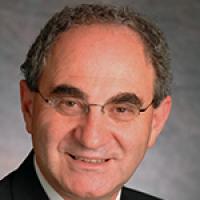
What limits speed? It could be the clock speed of a computer, or the speed with which we can detect a single electric charge, or we could ask the same question of many other high speed functions. One view is that the greater the resources poured into the effort, energy, money, etc., the greater the speed. The other view is that there is a fundamental speed limit that is controlled by the constants of nature, h, c, q, m. In this talk, the clock speed of a computer processor will be derived.
Professor Eli Yablonovitch is the Director of the NSF Center for Energy Efficient Electronics Science (E3S), a multi-University Center based at Berkeley. He received his Ph.d. degree in Applied Physics from Harvard University in 1972. He worked for two years at Bell Telephone Laboratories, and then became a professor of Applied Physics at Harvard. In 1979 he joined Exxon to do research on photovoltaic solar energy. Then in 1984, he joined Bell Communications Research, where he was a Distinguished Member of Staff, and also Director of Solid-State Physics Research. In 1992 he joined the University of California, Los Angeles, where he was the Northrop-Grumman Chair Professor of Electrical Engineering. Then in 2007 he became Professor of Electrical Engineering and Computer Sciences at UC Berkeley, where he holds the James & Katherine Lau Chair in Engineering.
Professor Yablonovitch is a Fellow of the IEEE, the Optical Society of America and the American Physical Society. He is a Life Member of Eta Kappa Nu, and a Member of the National Academy of Engineering and the National Academy of Sciences. He has been awarded the Adolf Lomb Medal, the W. Streifer Scientific Achievement Award, the R.W. Wood Prize, the Julius Springer Prize, and the Mountbatten Medal. He also has an honorary Ph.d. from the Royal Institute of Technology, Stockholm Sweden.
Professor Yablonovitch coined the term "photonic crystal" and is regarded as one of the fathers of the photonic bandgap.


